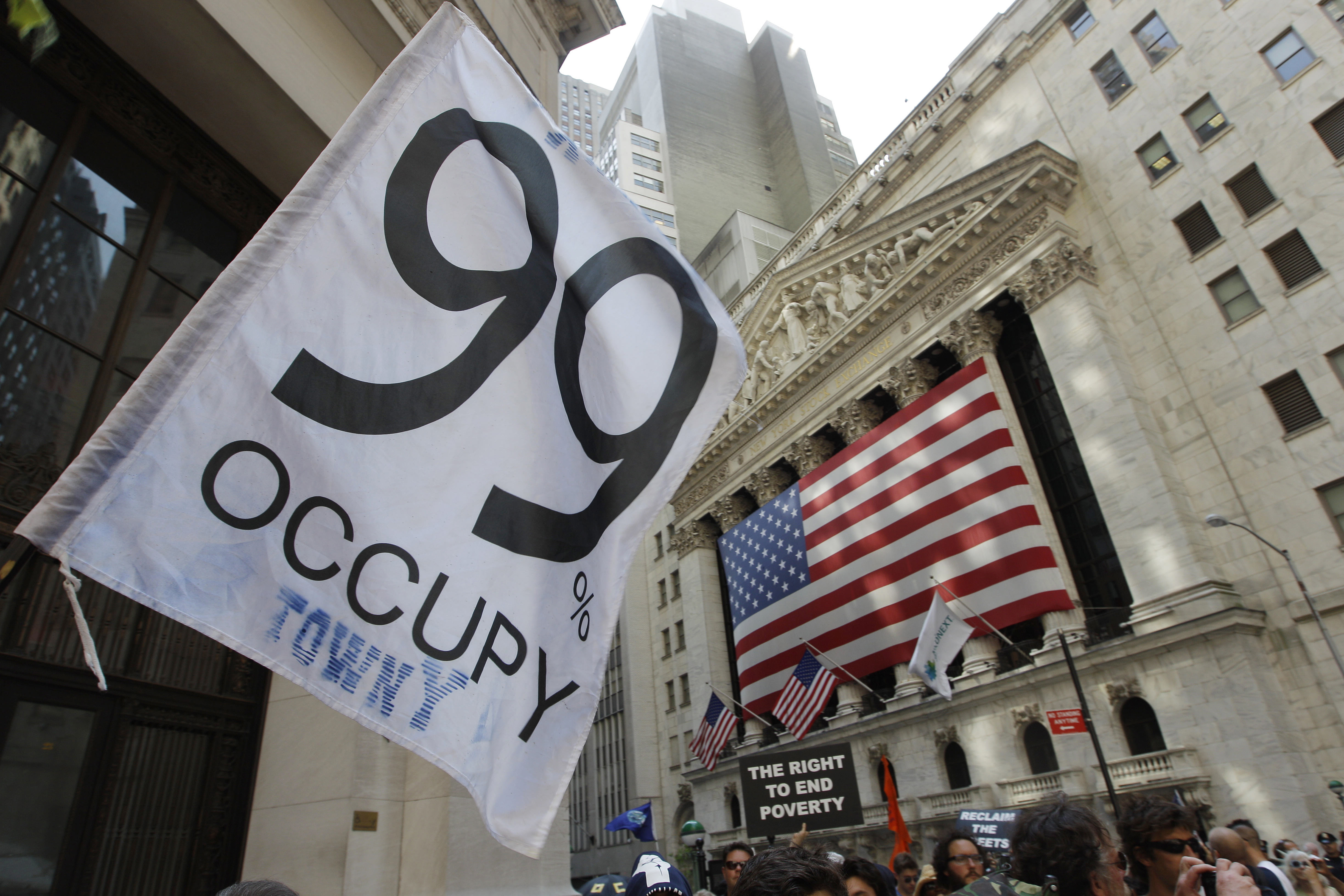Does America have a “1 percent problem” as President Obama argues? Yes, writes James Pethokoukis — “just not the one Obama thinks it has.”
Videos by Rare
The president, of course, argues for taxing the rich — the “1 percent” in Occupy Wall Street parlance — more so that the government can decide what to do with their money instead. He gets his facts wrong about what’s happened to middle-class earnings over the past 30 years, claiming they “barely budged” whereas, Pethokoukis points out, in fact “real median household income grew by roughly 20 percent before taxes and government transfers, and by about 40 percent after.”
But that’s not the only way Obama has the “1 percent problem” wrong, Pethokoukis explains at National Review Online:
“Instead of fretting so much about income inequality at the high end, Obama should focus on expanding economic mobility. Primarily, this means policies to boost GDP growth, polices including education, tax, and regulation reform. The economy has grown at just 1.8 percent annually, adjusted for inflation, for the past decade, versus 3.3 percent a year since 1929. And a new JPMorgan research report, ‘U.S. Future Isn’t What It Used to Be,’ says we had all better get used to the New Normal: ‘The long-run growth potential of the U.S. economy continues to slide lower, by our estimate, to around 1.75%; if realized this would be the lowest of the post-WWII era.’ That’s a huge drop; it means the economy will double in 42 years instead of 22.”
And here’s some news for those who agree with Obama: If the growth rate isn’t lifted, it won’t be “the rich” who suffer. In fact, it may be that there’s cause and effect here regarding growth and inequality — just the opposite of what the president argues. Rather than inequality driving low growth, it may be that low growth means there’s less prosperity to go around, and it’s bound to gravitate toward those who have the talent, work ethic, political connections, desire — pick your reason — to grab it. The less growth there is, the more efficient it is for rent-seeking businesses to lobby the government for special treatment: subsidies, contracts, tax breaks, etc. That doesn’t generate more economic growth or reduce the power and wealth of the already powerful and wealthy.
And, no, Republicans who act and talk about being “pro-business” instead of “pro-market,” and who are only too happy to pick winners as long as they’re different winners, do not help matters. That is one of the animating concerns of the emerging “libertarian populist” movement on the right.
Now, I’m sure some people would say Obama is all for “education, tax, and regulation reform.” After all, that’s why he wants government to take more money from “the rich,” right?
Not exactly. While the Obama administration has shown a modest amount of interest in changing the public education model, it has shown more interest in putting more money into the existing system. While this president has talked a lot about tax reform, it usually has been in reference to finding ways to extract more money out of taxpayers. And while this administration has piled on new regulations in what The Hill newspaper describes as “a dramatic expansion of the regulatory state,” that hardly counts as “reform.”
Taken together, estimates of future GDP growth are consistently at least 1 percentage point below their average for most of the 20th century. As Pethokoukis notes, that’s the “1 percent problem” we need to be concerned about, and centralizing economic power in a federal government that taxes and regulates more and more is not the way to address it.
Kyle Wingfield is the AJC’s conservative columnist. He joined the AJC in 2009 after writing for the Wall Street Journal, based in Brussels, and the Associated Press, based in Atlanta and Montgomery, Ala.
Related articles
- LIMBAUGH: The myth of liberal compassion (rare.go-vip.net)
- KUDLOW: Obama skips the Kennedy tax cuts (rare.go-vip.net)



